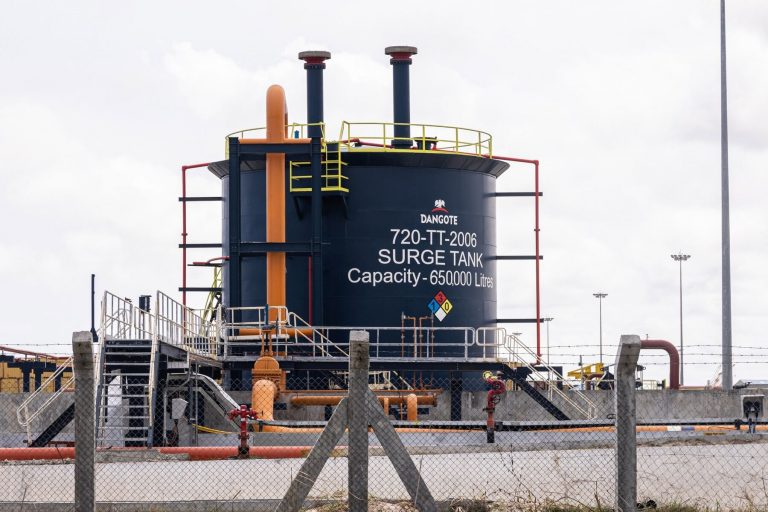
Nigeria’s Dangote Petroleum Refinery is increasingly emerging as a major player in the global energy market, with a report by Reuters indicating a surge in its jet fuel exports to the United States.
According to ship-tracking service Kpler, the refinery has delivered six vessels carrying approximately 1.7 million barrels of jet fuel to U.S. ports in March alone, with another 348,000 barrels expected to arrive at the Everglades terminal by the end of the month.
This uptick in Nigerian jet fuel shipments to the U.S. has led to increased demand for storage tanks in Houston and New York Harbor. TankTiger reported that requests for storage in April have averaged 700,000 barrels—five to six times the usual monthly demand.
Register for Tekedia Mini-MBA edition 17 (June 9 – Sept 6, 2025) today for early bird discounts. Do annual for access to Blucera.com.
Tekedia AI in Business Masterclass opens registrations.
Join Tekedia Capital Syndicate and co-invest in great global startups.
Register to become a better CEO or Director with Tekedia CEO & Director Program.
The 650,000 barrels-per-day (bpd) refinery, Africa’s largest and one of the top 10 globally, is currently operating at around 85% capacity and aggressively pushing fuel shipments to international markets, particularly North America. With U.S. jet fuel imports rising to their highest level in two years, Dangote’s exports could play a role in stabilizing fuel prices ahead of the peak summer travel season.
The refinery has also capitalized on a maintenance shutdown at Phillips 66’s Bayway refinery in New Jersey, giving it a competitive edge in the U.S. market. However, analysts warn that this window of opportunity may soon close due to high U.S. jet fuel inventories. The Energy Information Administration (EIA) reported that U.S. jet fuel stocks reached 45.2 million barrels at the end of February, the highest level for that month since 1999.
Challenges in the Domestic Market
Despite its increasing influence on the global energy landscape, the Dangote refinery continues to struggle with hurdles in the Nigerian market. One major issue is the continued importation of petroleum products despite the refinery’s vast capacity. The company is currently in a legal battle with the Nigerian Midstream and Downstream Petroleum Regulatory Authority (NMDPRA) over its continued issuance of import licenses to petrol marketers, a move that Dangote argues undermines local refining efforts.
Securing a steady crude oil supply has also proven difficult. Despite Nigeria’s status as a major oil-producing nation, the Dangote refinery relies heavily on U.S. crude to meet its production needs. The federal government’s Naira-for-Crude arrangement, which was meant to support local refineries by allowing them to purchase crude oil in Naira, has ended after a period of inconsistency.
With the cancellation of the Naira-for-Crude deal, it is expected that the Dangote refinery will further shift its focus to the international market, prioritizing exports over domestic sales. This move could enhance the refinery’s profitability but also come with consequences for Nigeria’s domestic fuel market.
The refinery had previously been selling products to local marketers at a lower rate, helping to stabilize prices. However, analysts warn that without the Naira-for-Crude framework, petrol prices in Nigeria are likely to rise, putting additional pressure on consumers who are already grappling with economic hardship.
As a result, the refinery has stopped selling petroleum products to Nigerian marketers in Naira, citing an imbalance between its sales revenue and crude oil purchase obligations.
“Dangote Petroleum Refinery has temporarily halted the sale of petroleum products in Naira. This decision is necessary to avoid a mismatch between our sales proceeds and our crude oil purchase obligations, which are currently denominated in US dollars,” the company said in a statement earlier this month.
This decision could further strain Nigeria’s foreign exchange reserves and lead to higher petroleum product prices in the domestic market, analysts warn.
The Dangote refinery’s ability to compete internationally highlights its potential as a major global refining hub. However, without significant policy reforms and structural changes in Nigeria’s downstream oil sector, the company’s struggles at home may continue to hinder its full economic impact within the country.



